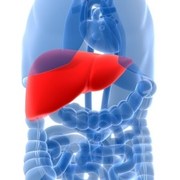 Harman Wardani/Unsplash
Harman Wardani/Unsplash
Currently 400 million people are living with hepatitis B and C worldwide. Of these, 4,000 die from illnesses related to hepatitis B or C every day, according to the World Hepatitis Day website.
Hepatitis is defined by the World Health Organization as “an inflammation of the liver.” There are five distinctive types of hepatitis, including A, B, C, D and E.
Hepatitis A is found within the fecal matter of someone with the disease, and is passed along when an individual comes into contact with the infected stool, typically when it is ingested orally.
"Hepatitis B, C and D usually occur as a result of parenteral contact with infected body fluids," the WHO website states. These viruses may be spread from contaminated blood or blood products or invasive medical procedures using contaminated equipment.
Hepatitis B and C are the most common types of the disease, and they often result in the accumulation of other chronic health problems. Jaundice, skin rash and cirrhosis are common symptoms that arise as a result of hepatitis B or C.
Hepatitis B occurs when an individual comes into contact with blood, semen or vaginal fluids of someone who already has contracted the hepatitis B disease.
Hepatitis C is often spread by the usage and sharing of needles, as it can be spread via the bloodstream.
Hepatitis D is not typically passed from person to person, but rather is a further infection that occurs in individuals with Hepatitis B.
Hepatitis E is most often transmitted through food and drink that has been contaminated with the virus.
The inflammation of the liver caused by hepatitis can be avoided by not sharing needles, and carefully examining anything ingested in order to assure it is cleanly and safe. There are also vaccinations for both hepatitis A and B in order to keep the disease at bay.
You can support the individuals suffering and dying from hepatitis by advocating the safe use of needles, and education on the life-threatening side effects.
Sources:
World Hepatitis Day, World Health Organization, Retrieved July 28, 2015
http://worldhepatitisday.org/en
Hepatitis Health Cener, Web MD, Retrieved July 28, 2015
http://www.webmd.com/hepatitis/hepa-guide/hepatitis-a-topic-overview
What is Hepatitis? World Health Organization, Retrieved July 28, 2015
http://www.who.int/features/qa/76/en/
General Information: FAQ, Hepatitis B Foundation, Retrieved July 28, 2015
http://www.hepb.org/patients/general_information.htm
Reviewed July 30, 2015
by Michele Blacksberg RN
Edited by Jody Smith





Add a Comment1 Comments
With all the attention to hepatitis on World Hepatitis Day, we feel that there should also be more emphasis on prevention.
It is extremely difficult to encourage people to get tested for Hepatitis B and C when they have no visible symptoms, or prior knowledge about the devastating impact these
diseases can have on their liver and their lives. Many have blocked their memory of past risk behaviors and are consumed with guilt. Prevention depends on individuals
making their own personal lifestyle decisions.
Ignorance about the important role the liver plays in hepatitis and other liver related illnesses, is a major deterrent to engaging individuals to participate in their own healthcare re prevention and identification of their own potential infection.
I would like to share an approach that we have found successful in helping motivate both adults and children to address these issues in their own lives.
Extensive evaluation of liver health education programs have shown that individuals who understand HOW liver damage occurs and the detrimental impact it can have on innumerable
life sustaining body functions, are motivated to make informed healthful decisions about their lifestyle and food choices. Providing simple messages they can relate to about the important role the liver plays in maintaining hundreds of body functions and sustaining life itself. . . is the key to
empowering them to act on what they have learned.
The following information is NEW to most individuals:
The liver has zillions of liver cells serving as the body's micro-chips, converting food into hundreds of essential body functions including producing energy, immune factors, digestive juices (bile), clotting factors, excretion of toxins (alcohol, drugs, pollutants), control of cholesterol and hundreds more. Liver
cells are the employees in your personal chemical refinery.
WITHOUT WARNING Hepatitis infection plus excess sugars, fats, alcohol and drugs ingested can kill liver cells turning them into scar tissue called cirrhosis. Continued assault over
months and years resulting in too many dead cells and too few healthy liver cells causes the liver to slow down and eventually shut down. When your liver shuts down-- so do you.
Early warning signs of liver trouble can be fatigue, a fat belly and derriere, and possibly flu- like symptoms. Assess your own risks! Look in the mirror - A waistline over 35 inches for women and 40 inches for men may indicate a fatty liver and developing liver damage.
Making healthy lifestyle and food choices and daily exercise will help keep liver cells healthy and your body in good shape. Ask your healthcare provider to check the status of your
liver. It could save your life.
If any of this information has been helpful to you, please share it with family, friends, and especially teachers.
July 31, 2015 - 9:56amThis Comment